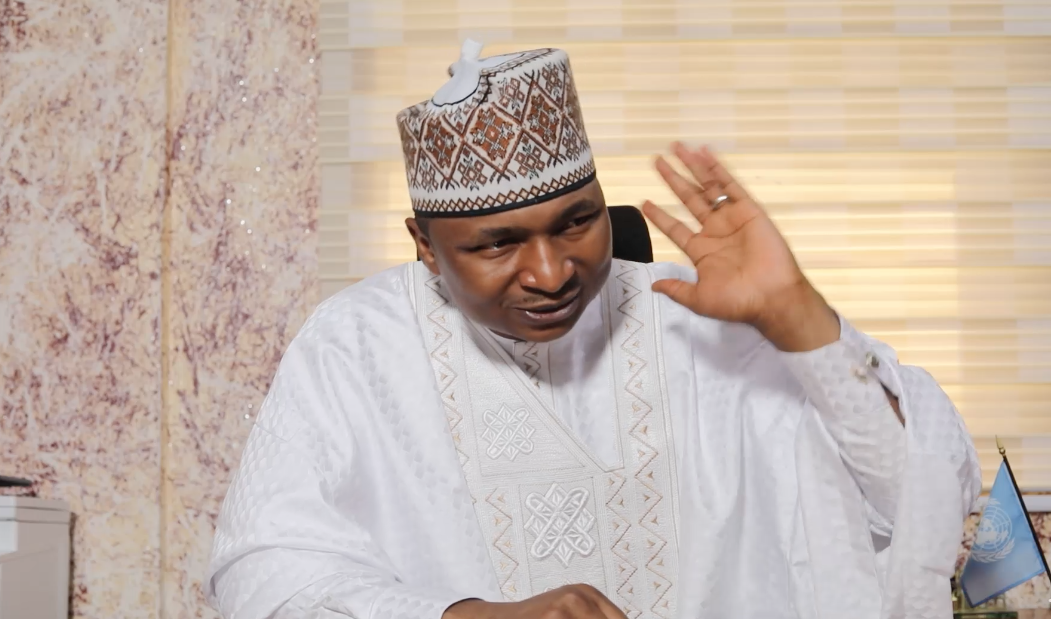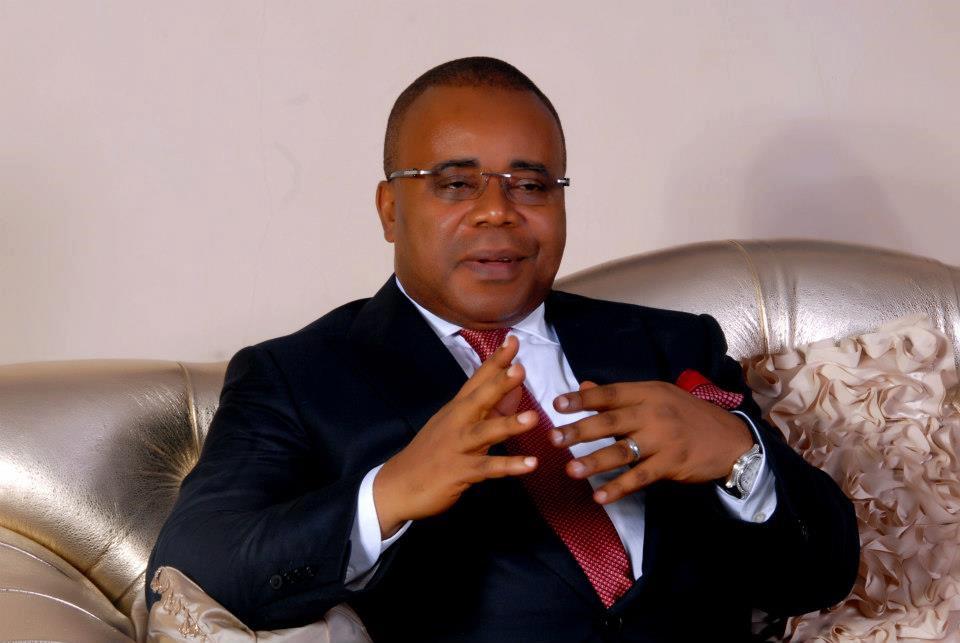President Bola Tinubu
By Keem Abdul
The announcement in early July, 2023 by the President Bola Ahmed Tinubu-led Federal Government of Nigeria that it is set to disburse the sum of N8,000 each to the least to the least economically-advantaged Nigerian families every month for the next six months, in a bid to cushion the effects of recent policies (e. g. the removal of subsidies on petroleum products), is being received with mixed reactions across the length and breadth of the country. Recall that the President had, about a week ago, requested the sum of N500 billion from the National Assembly to be distributed to struggling Nigerian families as palliatives. In the letter, Tinubu explained that the gesture would have a multiplier effect on about 60 million individuals.
While some praised the idea in principle – and even offered suggestions as to its effective and timely implementation, others have questioned both the proposed amount and the rationale behind it.
Before we weigh in on the pros and cons of the government’s plan, though, perhaps we ought to understand what is meant by a palliative, and in what context the latest plan by the Tinubu Administration ought to be taken. A palliative is a medical term which refers to a medicine or a form of care that relieves the symptoms of an ailment (say, the intense pain it causes) without actually dealing with the underlying cause (or causes) of that ailment. Used in a medical sense, a palliative is meant to be soothing, to alleviate physical symptoms, to act as a sedative, and so forth. Palliative care, then, is about improving the quality of life of anyone who is facing a life-threatening condition, and it can be physical, emotional or spiritual in nature.
Advertisement
Of course, there is no world in which palliative payments are, by themselves, a cure-all remedy for poverty – any more than feeding a man a fish every day will transform him overnight into a successful fisherman. Certainly, a sum as paltry as N8,000 (or even N10,000 or N20,000, for that matter) is no more than a drop in the ocean of mass penury that Nigerian society has become in recent years. It will be incredibly naive for anyone to assume otherwise, to think that palliatives are an alternative to deliberate plans, policies and actions designed to erect the building-blocks of economic growth and prosperity and to strengthen and position the ladder that enables poor people to climb out of poverty. On the contrary, palliatives are simply an interim measure to ameliorate a harsh (and hopefully temporary) condition, and to counter the adverse impact of a particular policy during an economic downturn.
Even in the face of that caveat, though, the Tinubu Administration’s palliative plan has drawn sharp criticism from a cross-section of commentators. One of their criticisms center on the size of the figure. ‘What can N8k do?‘ is the most recurrent question among the naysayers. “Can an individual, let alone a family, survive on N8k a month in the Nigeria of today?” Of course, N8k can meet the need for drugs – especially for those who need regular medication, such as persons with hypertensive or diabetic conditions. It can buy soap. It can pay for electricity. And so forth, especially if it is an augmentation of whatever the beneficiary already has at his disposal.
Another question that has also been asked concerning this issue is: How did government even arrive at the 12 million number (of households to be gifted this money)? What criterion was used to determine which families get the money and which, if any, do not? And how do you share the money. Another question is, Why six months? What happens after that – is there a surefire guarantee that the economy will then have recovered sufficiently for the most vulnerable families to stand on their feet, without further need of palliatives? Conversely, will the palliative regime continue indefinitely if the economy doesn’t pick up as expected and the material circumstances of the targeted segment remains precarious ?
Advertisement
And how do you determine who is ‘poor’, anyway? That was the same question asked when the previous government of President Muhamnadu Buhari made – and then renounced – its promise to disburse the sum of N5,000 to each unemployed graduate in the country (ie how to determine who is an ‘unemployed’ university graduate, and how many there are). Does anybody know how many poor people there are in Nigeria? Do even the people at the Federal Bureau of Statistics know for sure – beyond approximations, guesstimates and projections? Truth is that 60 years after the disputed census of 1962, Nigeria has not been able to conduct a single credible and universally-accepted census to determine our actual number. The population of Nigeria has always been based on speculations, projections, and so forth. We are told that we are over 200 million people. True or false?
In that same manner, there are simply no demographic statistics to show our real social stratifications – so we don’t really know how many of us are rich, how many are middle class, and how many are below the poverty level. Yes, we see poverty walking our streets, but sometimes it is dressed in three-piece suits, so we cannot differentiate between the merely poor and the poorest-of-the-poor. We only know the rich (and the stupendously rich) in our society who, over the years, have proved themselves adept at conspicuous conspicuous consumption and ‘crude showiness’ (apologies to Prof. Chinua Achebe). Only an accurate population figure can give us the data of the poor and vulnerable in our midst.
That, then, is – or should be – among the top priorities of the Tinubu Administration: a credible national population census that will help us to, among other things, plan our social disbursements more effectively.
Another issue that worries even those who share the President’s concern for the most vulnerable persons in society is that of corruption and the potential for abuse. Truth be told, Nigeria’s record with palliatives hasn’t been spectacular by any stretch of the imagination. The infamous palliative-related unrest that played out across the country during the 2020 Covid 19 lockdown is still fresh in the memory. So, there are tnose who would say we have traveled down this path before – and that there’s really no difference between the latest palliative plan with former President Buhari’s ‘Trader Moni’ scheme, the ‘School Feeding’ programme, and other (mostly spurious) social intervention schemes that characterised that era. The hope is that the Tinubu era, whose mantra ‘Renewed Hope‘ struck a chord in a section of the electorate, would not toe the path of its predecessor in this regard.
Advertisement
So, the desirability of palliatives, as a stop-gap measure to mitigate hardship, is not at issue among right-thinking people. What is at issue, basically, is the environment in which it often carried out. From experience, implementation has always been characterized by unbelievable ineptitude, shambolic preparation and process, lack of clarity and transparency, and inevitably poor results as far as end-user satisfaction is concerned. Like every other public policy, palliative programmes must be well thought-out; they must be fact- and evidence-based; they must make both economic and social sense; and they must be inclusive. Their temporary nature must be apparent, even to their beneficiaries as they see what is being done to fix the problems that necessitated these palliatives in the first place.
Palliatives are not just a matter of economics and material welfare; they are also a matter of psychology. The average human being (especially of the male species) is a creature of ego. A healthy, able-bodied man wants to think of himself as being capable of taking care of himself, his loved ones and dependents, as well as contributing meaningfully to the life of his community, his nation and humanity as a whole. Nothing crushes the spirit of such a man like the prospect of endless dependency, whether on the state (in the form of palliatives or other forms of social intervention) or on his fellowman.
To quote Achebe, charity is a noble thing, but it is NO substitute for social justice. Hard times, such as we are in now, certainly call on all of us (as well as the government) to be more charitable, more philanthropic and more intentional in our social investments. It is really more blessed, as the Bible says, to give than to receive. So, find a poor person and give them N10,000 for 6 months if you can. The prayers you will get in return will manifest in blessings which, as the Bible also says, maketh rich and addeth no sorrow to it. On a more fundamental level, however, these hard times call for a climate of shared responsibility and shared benefits. And it begins with government leading the way. Government must be seen to be making its share of the sacrifices and belt-tightening it demands of the populace. For years now, the phrase ‘reducing the cost of governance’ has been a buzzword in political and other circles – even though there has been zero political will (at national or sub-national level) to back it up. If there was ever a time for government and other critical stakeholders to muster the will to make sure that phrase is more than just hot air, it is now.
This is the time for political office holders (in both elected and appointive positions) to demonstrate what they always say during electioneering campaigns: They Came to Serve. Since a servant serves ONLY at the pleasure of his master, our leaders must focus their stewardship and the motivations behind their actions and policies on the pleasure of the masses who reposed their trust in them. That is why, in the view of this writer, it goes against the grain of common sense and morality to disburse palliatives worth N500 billion to millions of ‘vulnerable families’ and ask them to make do – and then approve a whopping sum of N110 billion to buy bulletproof SUVs for just 540 lawmakers in Abuja – plus an additional N70 billion to support their “working conditions.” Any society in which politics and public office are more lucrative than industry, than investments in human capital, than agriculture, is a non-starter as far as human development is concerned.
Advertisement
Within the limit of its resources, government should raise the minimum wage while trying to keep inflation at manageable levels. In particular, government must establish and sustain a mechanism to subsidize essential commodities, begining from staple foods such as rice, beans, tomatoes and, if possible, even yams. If people can comfortably afford these things, then half of the problems of social inequality is solved. Revolutions and other social upheavals usually begin from the masses not being able to afford the most basic staples. (Remember the French Revolution of 1789? It began with an insensitive Queen who said of the hungry masses who couldnt have bread: ‘Let them eat cake‘). A people who are psychological dehumanized by the affluence of those who are supposed to serve them will not be easily assuaged by palliatives; for them, in fact, such handouts begin to look like an act of mockery.
Better still, government will do well to set up Food Banks – whether on its own or, preferably, in collaboration with private sector players, while also encouraging the private sector itselfto act independently in this regard – with tax incentives as a motivator. Somebody said that measures like these would be ‘The Real Palliative.’
Advertisement
Actions like these should not be limited to just the government at the centre. Unfortunately, because of the top-heavy nature of our so-called ‘federal’ structure – in which the Constitution places over 65% of legislation in the Exclusive (ie federal government-controlled) List – leaving only 35 to the constituent parts, attention tends to focus on what the Federal Government is doing or not doing, how it is spending our national patrimony, etc, whereas the real impetus for development is in the states and local governments. The more organized, structured and well-funded these subnational units (especially the LGs) are, the better-positioned they will be to make a real difference in the lives of the people. That is why it is nothing short of a tragic scandal that, as we speak, some states do not have LG Councils in place – no thanks to a mostly unpalatable cocktail of factors that have nothing to do with economics or social welfare, and everything to do with politics. This situation must be reversed at once: President Tinubu should direct all state Governors to conduct LG elections as a matter of urgency, to enable palliative funds to get to the grassroots within the shortest possible time. The most genuine index of good governance, in the end, is whether those in the rural communities benefit from the policies and actions of their government as well as those in urban areas.
The good news is that even as the government’s palliative plan continues to receive mixed reactions from various quarters, the Federal Account Allocation Committee (FAAC) has announced its intention to share almost N2 trillion as revenue for the three tiers of government as an immediate and major benefit of fuel subsidy removal. Monies which would have been frittered away in the space of a month via fuel subsidy will now go into government coffers for the purpose of improving living conditions. This means more money for real development; subnational units will have enough money to pay workers’ salaries and pensions. Government treasuries will be more solvent; they will be in a stronger financial position to easily pay a new minimum wage and fund development in critical sectors such as education, healthcare and public transportation. Also, the intensity of the scrutiny that will now be beamed on them will spur states and LGs will be more accountable and transparent in the use of public funds.
Advertisement
That, and the review of the palliative plan recently ordered by the President in response to some of the concerns raised by stakeholders, is the way to go.
Otherwise, whatever its duration, a palliative may become no more than a placebo – something that looks like the “real” treatment but isn’t, even though the person taking the placebo can have a positive response to it (in some cases merely as a side effect). But the placebo effect never lasts.
Advertisement
What Nigerians need right now are solutions that last.
– Keem Abdul, a PR consultant, publisher and writer, hails from Lagos. He can be reached via +2348038795377 or [email protected].
Add a comment






